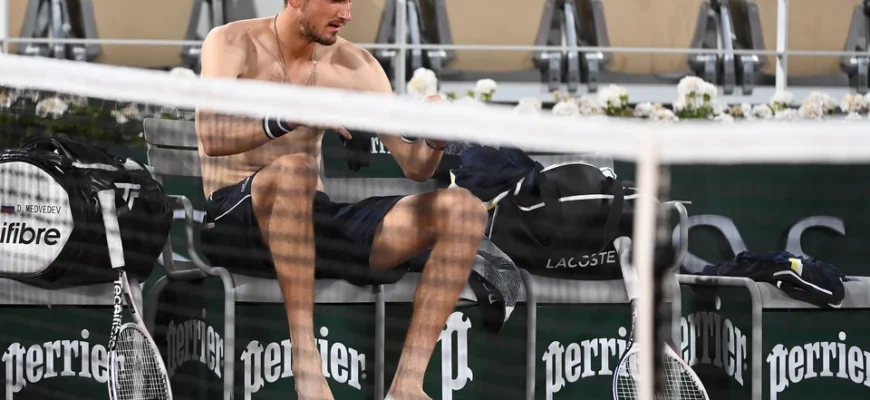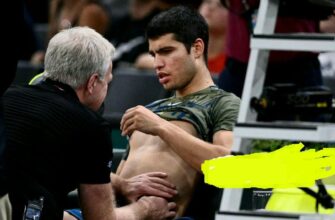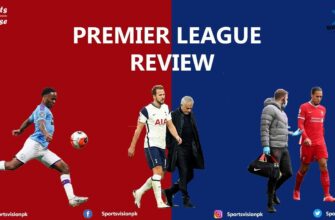In the high-stakes world of professional tennis, where precision meets power and every shot can alter a trajectory, the physical toll on athletes is immense. After a grueling campaign at the Shanghai Masters, Russian tennis star Daniil Medvedev offered a stark, candid assessment of his condition: “Everything hurts.” This seemingly simple statement, delivered after a commendable run to the semi-finals, peels back the glamorous veneer of the sport to reveal the raw, relentless grind faced by those at its pinnacle.
The Shanghai Gauntlet: A Tale of Resilience
Medvedev, currently ranked 18th in the world, battled through the competitive field of the Shanghai Masters with characteristic tenacity. His journey culminated in a semi-final clash against France`s Arthur Rinderknech, a match that saw Medvedev ultimately succumb in a tight three-setter: 6/4, 2/6, 4/6. While a semi-final appearance at a Masters 1000 event is a significant achievement for most, for an athlete of Medvedev`s caliber, it`s both a testament to his fighting spirit and a benchmark against his own high expectations.
Yet, the result itself tells only part of the story. The true narrative lies in the unglamorous aftermath, where the body, pushed to its absolute limits, begins to voice its complaints. Medvedev`s confession wasn`t a lament of defeat, but an honest acknowledgment of the physical sacrifice involved.
“It was a very tough tournament physically. Heavy weather conditions. Literally everything hurts. Well, it`s nothing, there will be a couple of days for recovery. But overall, it was still a positive tournament for me. Yes, I know I can do much better. But this is already much better than it was before, so step by step I will try to show even more.”
This quote encapsulates the paradoxical existence of an elite athlete: performing at an extraordinary level while simultaneously experiencing profound physical discomfort. “Everything hurts” sounds alarming, yet it`s often an expected, albeit unwelcome, companion to success in high-performance sports.
The Unseen Battle: Demands of the ATP Tour
The ATP Tour is not merely a series of tournaments; it`s a global marathon that spans continents, climates, and calendars. Players like Medvedev are constantly adapting to different time zones, varied court surfaces, and often, extreme weather conditions. Shanghai, with its notoriously humid environment, can be particularly taxing, draining energy reserves and exacerbating physical strains.
Consider the cumulative effect: weeks of intense training, followed by back-to-back tournaments, often without adequate rest. Each serve, forehand, and sprint adds to the micro-trauma, building up until the body`s warning signals become unmistakable. For a player like Medvedev, known for his relentless baseline game and exceptional court coverage, these demands are amplified. His style of play, while effective, requires a level of physical output that leaves no muscle un-taxed.
Beyond the Pain: The Mindset of a Champion
What truly distinguishes a top-tier athlete isn`t just their ability to endure pain, but their capacity to interpret it and harness it for future growth. Medvedev`s declaration that the tournament was “positive” despite the physical agony reveals a profound mental fortitude. This isn`t a passive acceptance of discomfort, but an active reframing of the experience.
- Growth Mindset: Acknowledging “I know I can do much better” isn`t self-criticism, but a commitment to continuous improvement.
- Perspective: Recognizing “this is already much better than it was before” highlights a focus on progress, however incremental.
- Strategic Recovery: The immediate thought of “a couple of days for recovery” underscores the meticulous planning required to maintain peak performance over a long season.
This blend of self-awareness and forward-thinking is crucial. For Medvedev, the pain is not a deterrent but a data point, an indicator of effort and an area for strategic management. It`s a professional hazard, yes, but one that comes with the territory of competing against the world`s best.
The Road Ahead: Recovery and Reloading
The “couple of days for recovery” Medvedev mentioned are not merely days off; they are meticulously planned periods of physical therapy, rest, and mental recuperation. For athletes operating at this level, recovery is as vital a component of their training as hitting a thousand forehands. It`s during these periods that the body rebuilds, injuries are managed, and mental fatigue is addressed.
As the ATP season progresses, with its culminating events like the ATP Finals, Medvedev`s ability to recover efficiently will be paramount. His candidness serves as a potent reminder that behind every spectacular volley and thunderous ace lies a body that aches, strains, and often, simply hurts. Yet, it is this very vulnerability, combined with an unwavering pursuit of excellence, that makes the journey of an elite tennis player so compelling. Medvedev’s “everything hurts” is not a cry for sympathy, but a quiet testament to the extraordinary demands of his craft, and his readiness to endure them, step by painful step, towards even greater achievements.








